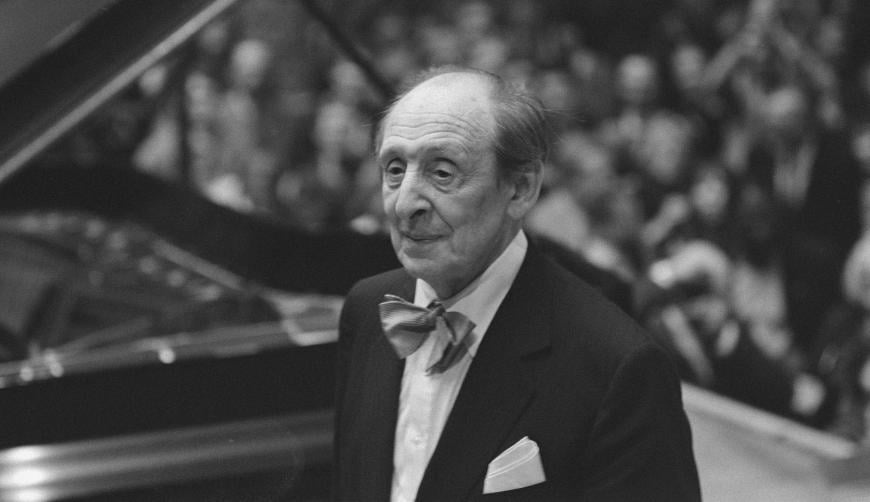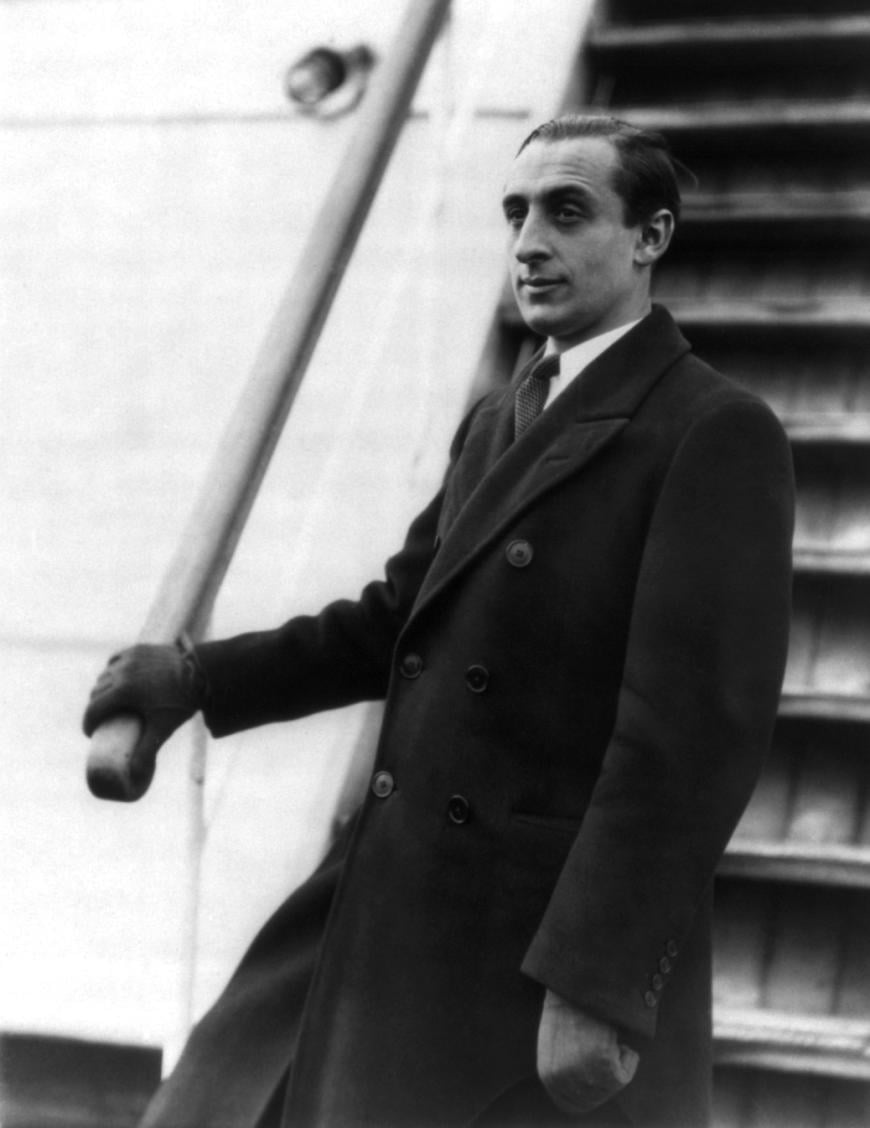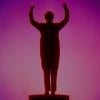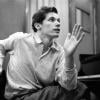
Vladimir Horowitz (1903–1989) was at once one of the most poetic and one of the showiest pianists of the 20th century. His superhuman finger speed, his bombastic fortissimos, and his (not occasional) disregard of composer’s performance markings won him a huge fan base but also the ire of some contemporaneous critics, such as the irascible Virgil Thomson.
But Horowitz often disparaged his technical skill as comparatively unimportant. He was a disciple of the Russian piano school, and that approach emphasized round, pearly tone, a variety of sound colors, and a singing legato line that was grounded in vocal music. Both he and Sergei Rachmaninoff idolized the great Russian bass Fyodor Chaliapin, and Horowitz could apparently do a credible imitation of the singer’s style. It may seem strange, in light of contemporary world events, that a Ukrainian Jew who trained at the conservatory in Kyiv would carry the torch of the Russian piano school, but Ukraine was part of the Russian Empire at the time.

Although the Russian-school label is sometimes used to describe any pianist that trained in Imperial Russia and the subsequent USSR, Horowitz is associated with a style that was fairly formally based on the example of Anton (not Artur) Rubinstein, who founded the St. Petersburg Conservatory of Music in 1862 and later gave a famous series of seven concerts tracing the history of piano music. Rachmaninoff attended them, and the pianists of the next generation referred to Rubinstein as the great exemplar of piano playing. Along with Rachmaninoff and Horowitz, others who came to prominence from this school included luminaries like Josef Hofmann (who studied with Rubinstein), Josef Lhévinne and his wife Rosina, and Heinrich Neuhaus, author of the influential text The Art of Piano Playing (1958).
There are technical aspects to this piano style, such as pedaling to achieve certain subtle effects, keeping one key depressed while the next is sounded to further bind the melodic line together, and using various touches within a single hand to bring out contrapuntal lines. Horowitz did all of this and also learned to strike the keys with the pads of his fingers, rather than the tips, supposedly the source of his penetrating sound. He famously and idiosyncratically kept his wrists low, when almost every piano teacher will advise you to keep them higher than the keyboard.
But mainly, Horowitz was a true poet, following his artistic intuition. Like so many poets, he suffered from depression, which interrupted his career many times after his defection from the Soviet Union in 1927. (He became an American citizen in 1944.) Nevertheless, he had time to grab 25 Grammy Awards (as well as a Lifetime Achievement Grammy), along with a Presidential Medal of Freedom from Ronald Reagan, among many other honors. Some of his recordings are just astounding, but all are worth hearing. These are a few key performances that define his career:
Tchaikovsky: Piano Concerto No. 1, Rachmaninoff: Piano Concerto No. 3 — New York Philharmonic; John Barbirolli, conductor (APR)
“Yes, the pundits were right. This is the Rachmaninoff Third to end all Rachmaninoff Thirds,” reads the 1998 Gramophone review. Horowitz actually made the very first recording of that concerto, in 1930 in London. This one is taken from a 1941 broadcast performance. The Gramophone review goes on to praise Horowitz’s “tumultuous, near-apocalyptic brilliance.”
Vladimir Horowitz II: Great Pianists of the 20th Century, Vol. 48 (Polygram)
In 1932, Horowitz made the first electronic recording of Franz Liszt’s Sonata in B Minor. This volume of Polygram’s remastered series gives you that and a whole disc of Liszt, plus a second disc of sonatas by Alexander Scriabin and a brilliant performance of Frédéric Chopin’s Polonaise-fantaisie in A-flat Major.
Horowitz: The Legendary 1968 TV Concert (Sony)
Returning from one of his layoffs, the pianist was captured live in recital for the TV cameras. Wouldn’t happen today, but these transfers are fantastic and a good document of the pianist mid-career.
Horowitz the Poet (DG)
Deutsche Grammophon brings together wonderful recordings of Robert Schumann’s Kinderszenen and Franz Schubert’s Sonata in B-flat Major.
Horowitz in Moscow (DG)
One of Horowitz’s last concerts captured live on CD and video, this is the pianist without the physically overpowering playing. Horowitz often programmed sonatas by Domenico Scarlatti. One of those is here, along with Mozart, Chopin, Schumann, and of course, Scriabin and Rachmaninoff.




